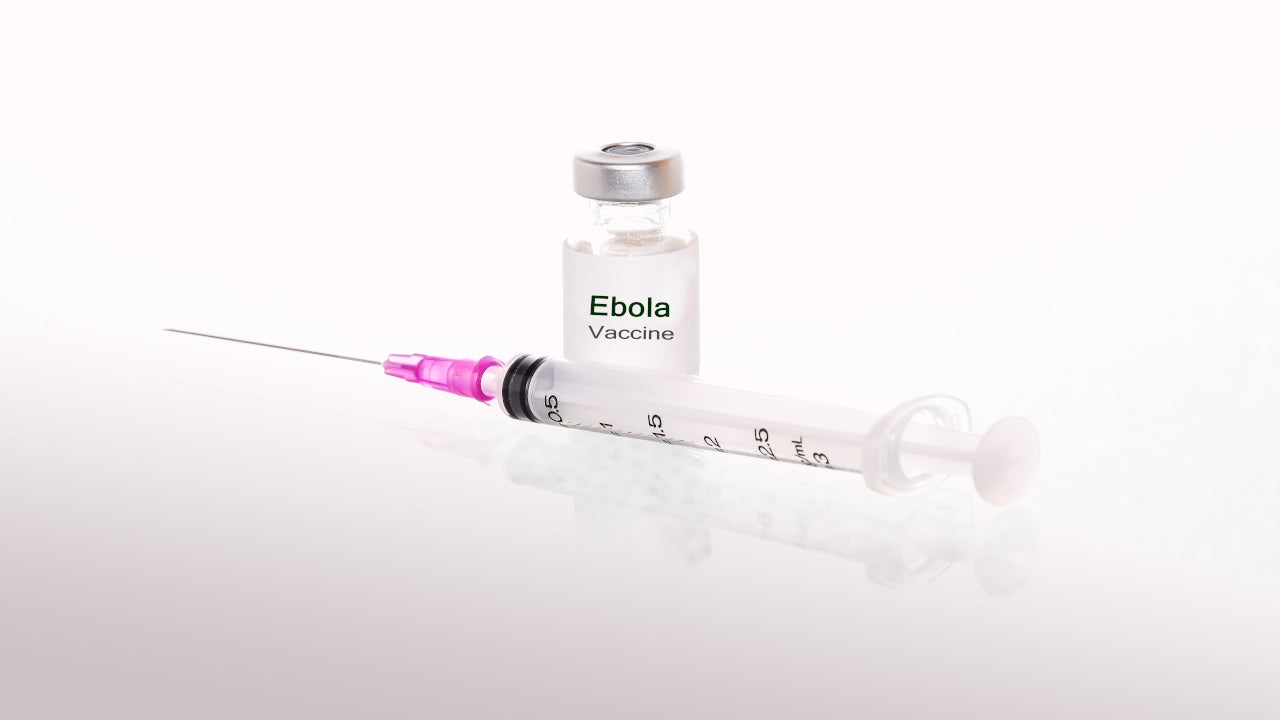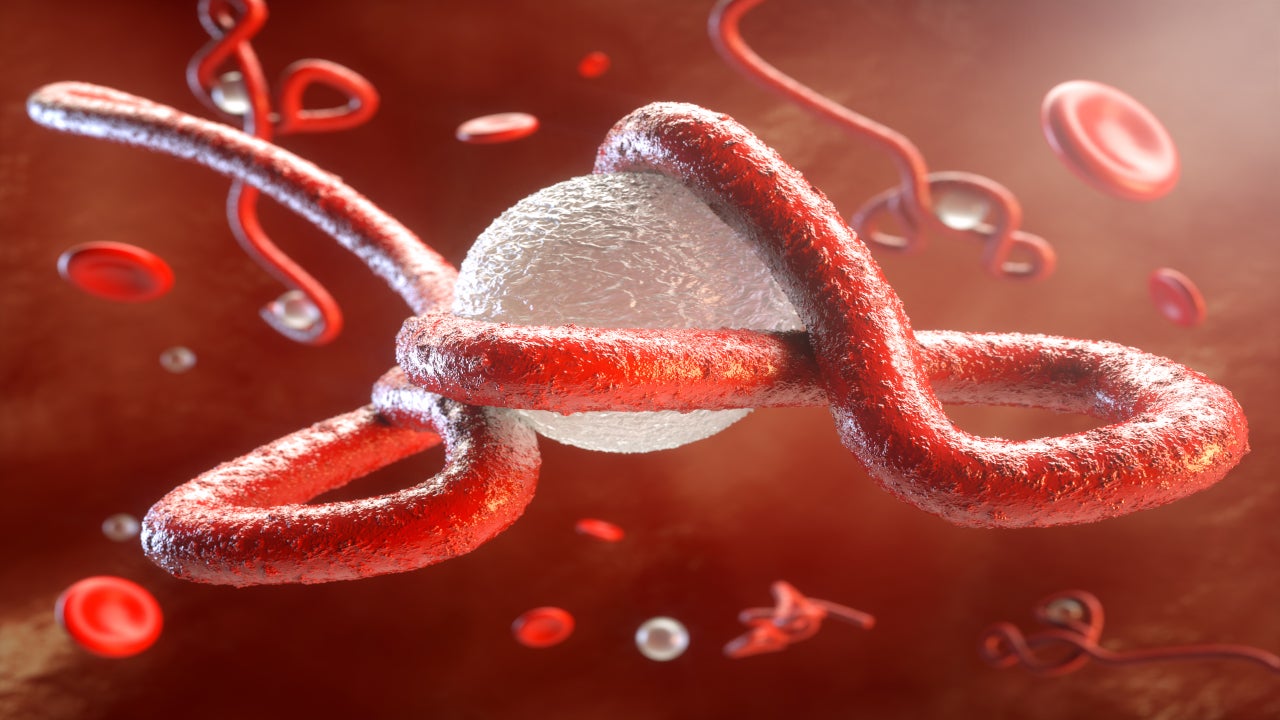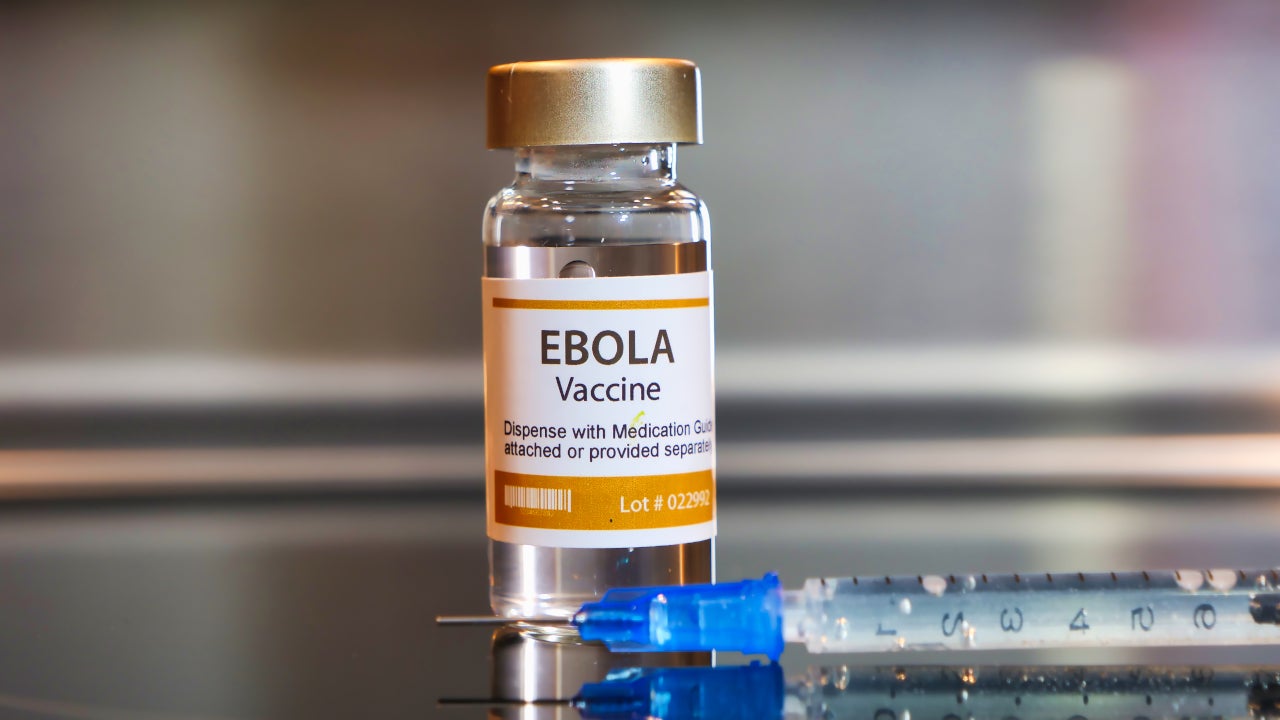INMAZEB™ (atoltivimab, maftivimab, and odesivimab) is the first antiviral antibody therapeutics approved for the treatment of Zaire ebolavirus infection in adults and children, including newborns whose mothers tested positive for the infection.
INMAZEB, also known as REGN-EB3, was developed by Regeneron Pharmaceuticals using its ‘rapid response’ VelocImmune® platform and associated VelociSuite® technologies. The technologies are also being used for the development of the company’s investigational Covid-19 antibody combination.
The drug is available as a clear to slightly opalescent and colourless to a pale-yellow solution in a single-dose vial for intravenous infusion. The dosage strength of a single shot is 241.7mg of atoltivimab, 241.7mg of maftivimab, and 241.7mg of odesivimab per 14.5ml.
INMAZEB approvals
The biologics license application (BLA) submitted to the US Food and Drug Administration (FDA) was accepted for priority review in April 2020.
Biomedical Advanced Research and Development Authority (BARDA) partnered with Regeneron to procure INMAZEB as part of the US Department of Health and Human Services’ (HHS) aim to build national preparedness for public health emergencies in July 2020.
Regeneron will provide a specified amount of INMAZEB treatment doses over six years to BARDA for compensation of approximately $10m in 2021 and $67m a year on an average for the next five years.
Inmazeb received FDA approval in October 2020. The drug also holds orphan drug and breakthrough therapy designations granted by the FDA.
Zaire ebolavirus infection causes and symptoms
Zaire ebolavirus infection (sometimes called Ebola or Ebola virus disease, EVD), was previously known as Ebola haemorrhagic fever. The rare, sporadic but deadly disease in humans occurs primarily in Africa.
The infection is caused by a group of viruses within the Ebolavirus genus. The virus is transmitted through direct contact such as through torn skin or mucosal membranes in the eyes, nose, or mouth from wild animals to humans, and travels throughout the human population via human-to-human transmission.
If left untreated, the Ebola virus can cause an immediate and severe infection, which is often lethal.
Symptoms usually develop between two and 21 days after the contact with the virus. The primary symptoms of the disease include weakness, headache, muscle and joint pain, abdominal pain, fever, diarrhoea, vomiting, sore throat, unexplained bleeding, haemorrhaging and bruising.
INMAZEB mechanism of action
INMAZEB is a novel multi-antibody drug to inhibit Zaire ebolavirus. The drug constitutes a cocktail of three Zaire ebolavirus glycoprotein-directed recombinant human monoclonal antibodies, namely atoltivimab, maftivimab and odesivimab-ebgn.
Inmazeb targets different and non-overlapping epitopes on Zaire ebolavirus glycoprotein that mediates the attachment of the virus with the cell membranes of the host.
Inmazeb neutralises the Ebola virus by antibody-dependent cellular cytotoxicity or other functions and eliminates them from the body.
Maftivimab is a neutralising antibody that prevents the virus from entering into the susceptible cells, while odesivimab is a non-neutralising antibody, which binds to its target and induces antibody-dependent effector function via FcyRIIIa signalling. It also binds to the soluble form of Zaire ebolavirus glycoprotein. Atoltivimab performs both neutralising and the signalling functions of FcyRIIIa.
Clinical trials on INMAZEB
FDA approval of INMAZEB was based on the results of a multi-centre, open-label, randomised controlled four-arm clinical trial, PALM (PAmoja TuLinde Maisha).
The trial began with the enrolment of 681 patients (including pregnant women) with Zaire ebolavirus infection of all ages in the Democratic Republic of the Congo (DRC) in response to the 2018 Ebola outbreak. The study was co-sponsored by the National Institute of Allergy and Infectious Diseases (NIAID) and the Institut National de Recherche Biomédicale (INRB).
Safety and efficacy of INMAZEB were evaluated in 322 paediatric and adult patients.
Patients (n=154) were randomised to receive either INMAZEB intravenously as a single infusion, or an investigational control (n=168) agents such as ZMapp and remdesivir.
The primary efficacy endpoint of the PALM trial was the mortality rate at day 28. Patients receiving Inmazeb showed a mortality rate of 34% at day 28, while those in the control group showed a 51% mortality rate.
Common adverse events reported in patients during the clinical trial were tachycardia (fast heart rate), pyrexia (or elevation in fever), tachypnea (fast breathing), chills, hypotension, vomiting, hypoxia and diarrhoea.





